Memphis
10 years of World Relief Memphis: David’s Story
Over the ten years World Relief Memphis has been in operation, we have had the privilege of serving hundreds of refugees, asylees, and other vulnerable immigrants. Over the past couple of months, we reached out to some of the first families and individuals we welcomed, to our newest arrivals.
David and his family’s story is one of perseverance, patience, and prayer. Originally from the East African country of Uganda, David and his family sought safety in Kenya to escape conflict there. In Kenya, they found the UNHCR (United Nations High Commissioner for Refugees) and started the process of resettlement. After several interviews and a long period of waiting, David was approved and invited to be resettled in Memphis in 2015. Although the initial resettlement period can be a time of joy, for David, his resettlement meant leaving his children behind.
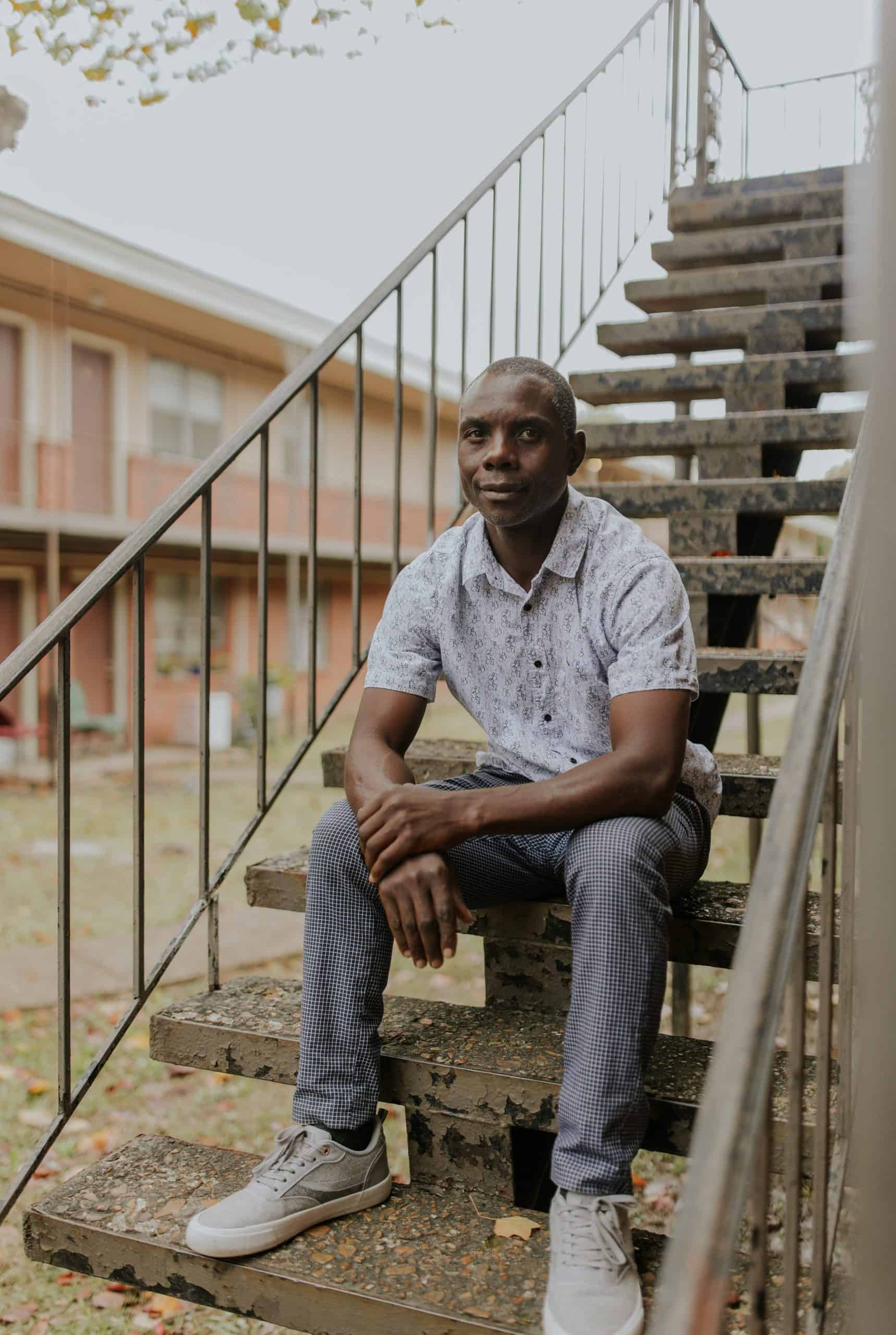
As a single father of eight, this was an incredibly hard time for him. One thing he did have to support him during this time was World Relief Memphis. As soon as he arrived, WRM was waiting for him. “They helped me with housing, connected me to people, I made friends, and I got a job through World Relief.” WRM was also able to assist David in immediately filing for the reunification of his family.
It took six long years from the moment he began the request and the paperwork process to the moment his children began to arrive. During those years, David and his children had to complete multiple DNA tests, dozens of interviews, and fill out what felt like every form in the world. The first round of interviews started in 2017 and it seemed like the process was rolling smoothly until President Trump significantly reduced the refugee ceiling. They didn’t hear any updates until February 2019. “It was a very hard time because they kept promising, “you are coming you are coming,” and then nothing.”
“They helped me with housing, connected me to people, I made friends, and I got a job through World Relief.”
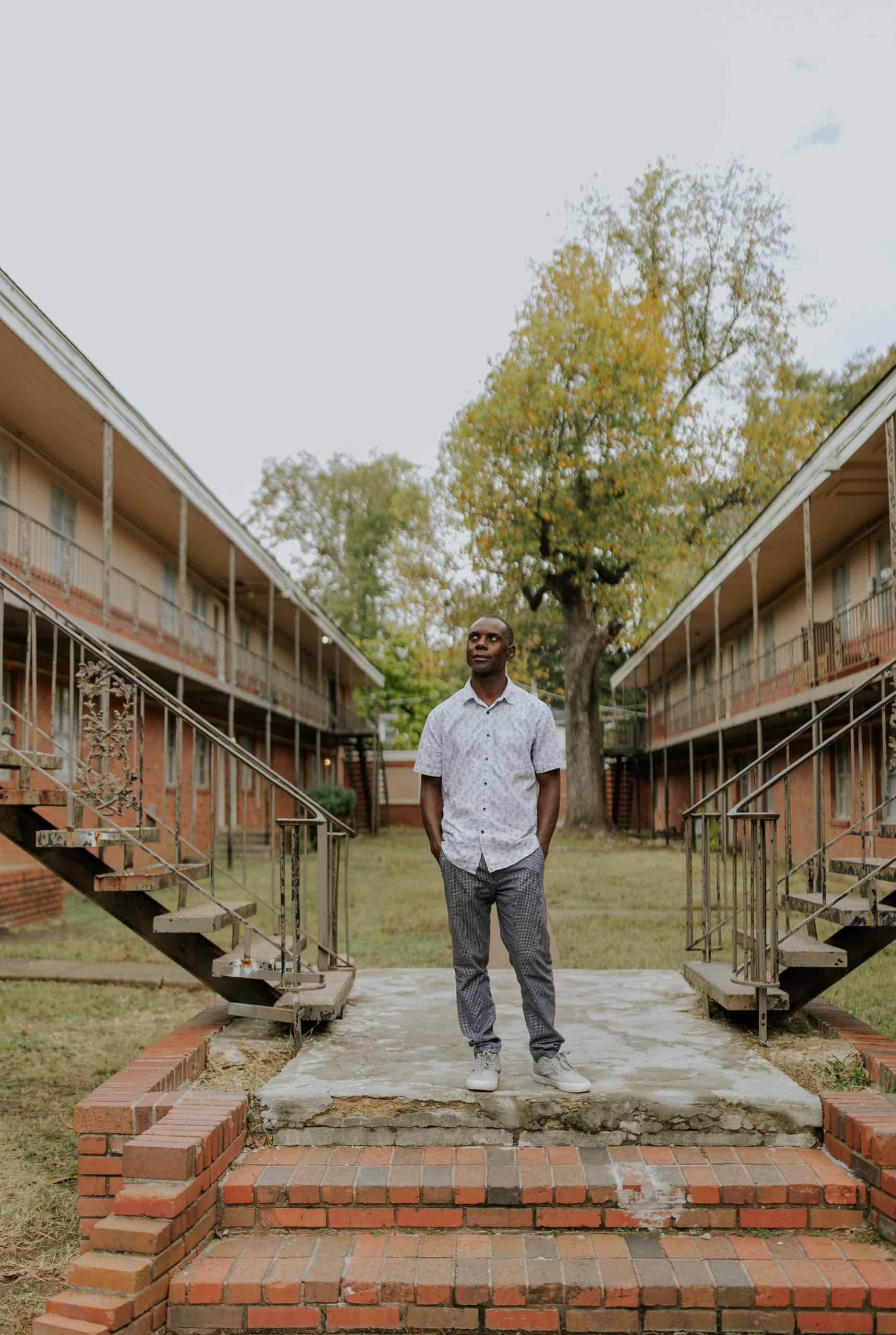
After that pause, there was another hurdle. The US Embassy in Kampala, Uganda told them that they were no longer processing the case and that the kids would need to make their way to Nairobi, Kenya. David reached out to the office there after not hearing anything and the Nairobi international field office said that they had not received their cases. Then the office wanted to start the interviews all over again, this time in Nairobi. This was a major setback as the family had already gone through this once and now David needed to find a way to pay for his kids to travel from Uganda to Kenya, which would be very expensive.
Not wanting to give up, David reached out to the office again to plead his case and allow the process to continue in Uganda. The Lord provided. “God was good. After I talked with the field officer, she decided to reschedule the appointment in Uganda. So, I said, “Ah thank you God!”’ Though being able to finish the process in Uganda was a blessing, that was not the last hurdle they had to jump. They had to repeat the DNA testing and the medical exams multiple times as they kept expiring due to their long waiting period. Finally, they thought they were about to be approved when the Covid19 pandemic hit. This led to another year of waiting.
“God was good. After I talked with the field officer, she decided to reschedule the appointment in Uganda. So, I said, “Ah thank you God!”’
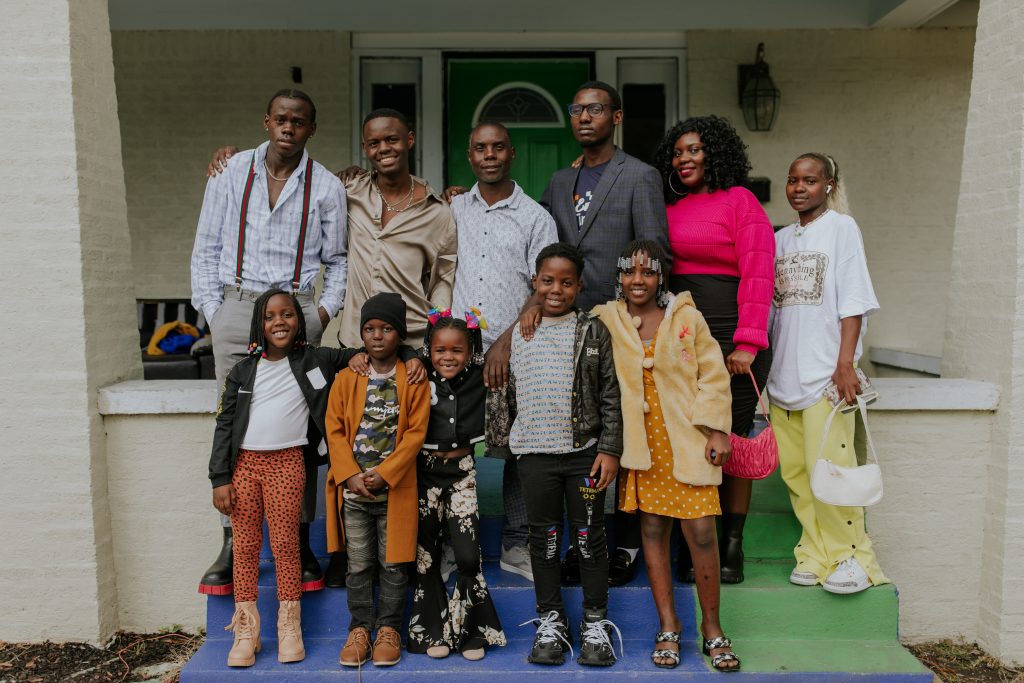
In May 2021, after six years and four months, David was reunited with his son Jonathon. Soon after, his family slowly but steadily arrived: first in June, July, and then September that year. The last of his children finally came in January and February of this year. By the time all of his children were back home with him, he had become a grandfather of three beautiful grandchildren as two of his daughters had started families of their own while in Uganda.
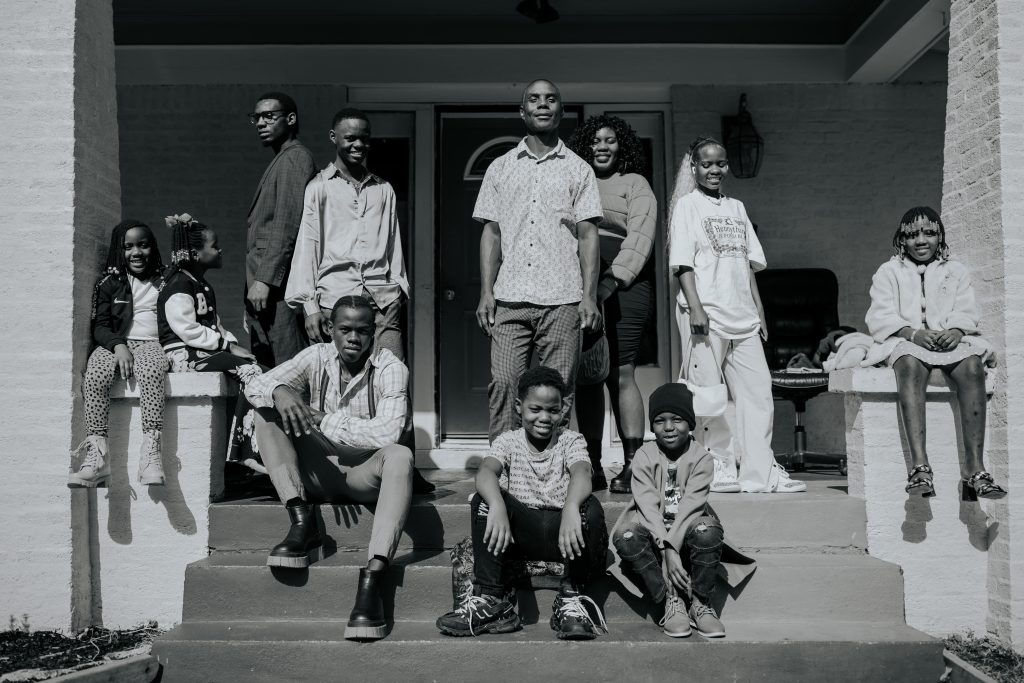
Throughout this whole process, David never lost hope, even though it was devastating to be apart from his family for so long. While they were apart, David shared that he would contact his kids and remind them not to lose hope, “Just know the time will come no matter how long.” While he was working here, he was able to send money back to them to make sure they were able to stay in school while they were waiting to travel and so they would have what they needed. Now that they are together, many of his older children are working and going to school and college which David is very proud of.
Reflecting over his entire journey, David shared how World Relief gave him a solid foundation in his early months here. Helping with cultural orientation, housing, and finding a job, he was able to take those lessons and skills and apply them to advocating for his family, buying his own home and car, and now starting his own business. He shared about his dreams and plans for the future saying “My dream, I want to be my own boss. I also hope to own rental properties one day. Right now, I offer landscaping services.” His goal is to be a part of people loving where they live. (Check out his business at Prooftobelieve.com LLC and contact him at zion@prooftobelieve.com)
As we ended our conversation, David wanted to share one last time the importance of patience.
“It wasn’t easy. All these challenges in life, you can’t avoid them. Challenges are always there in life, you have to face them. But, it is the way you focus and stand against challenge and overcome them, that matters. As I told you, patience pays. It’s not easy to wait, but like Jesus commanded the apostles in Acts 1-4, you must wait for the Father’s promise.”
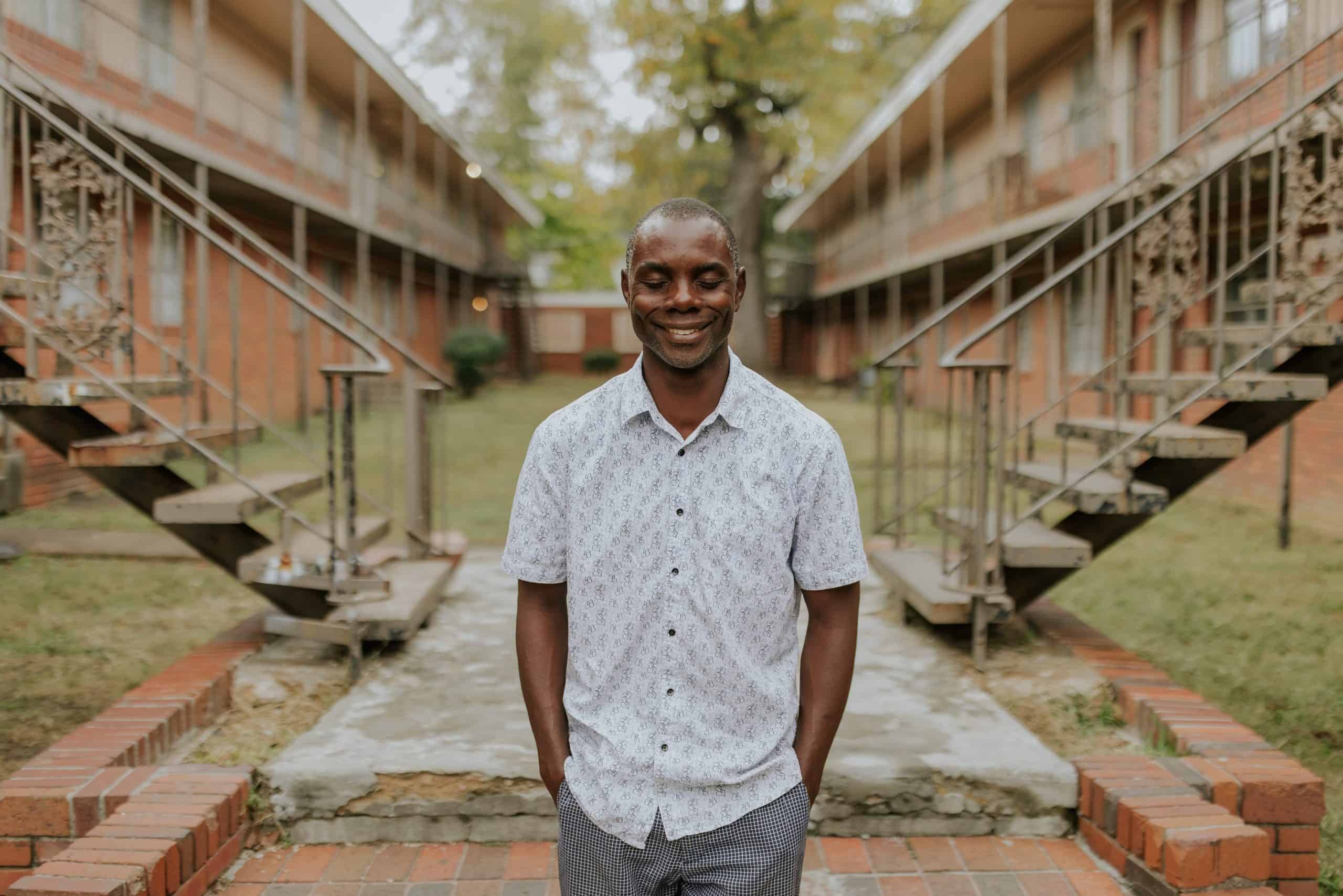
We are so thankful for David for sharing his family’s story and allowing us to share it with you. Through all of their hardship, it is still so clear to see God’s faithfulness in bringing this family back together. Here at World Relief Memphis we have seen Gods faithfulness these past ten years through the support from people like you. We thank you for joining us on our journey in making Memphis a more welcoming community.
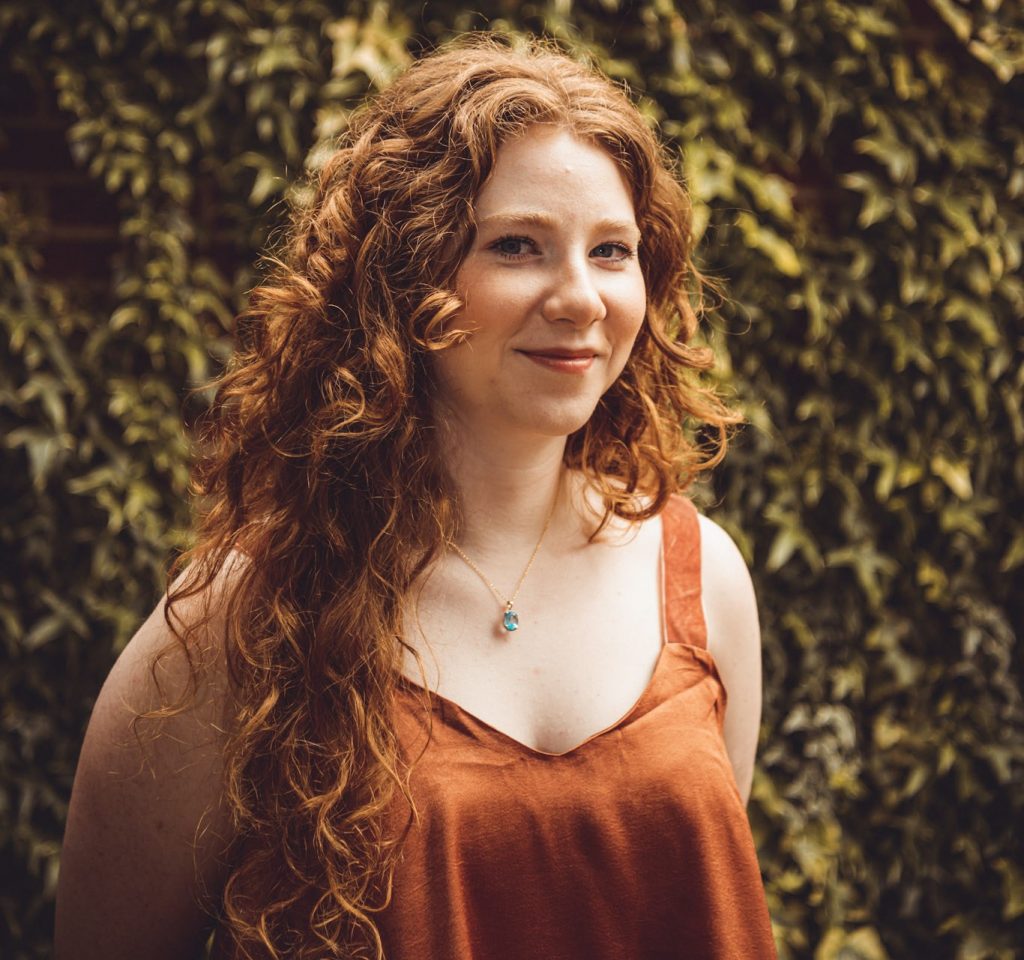
Writer: Kara Spencer
Communication Coordinator at World Relief Memphis, recent graduate of Harding University, and Memphis native.
Photo Credits: Emily Frazier
If you would like to learn more about World Relief Memphis in the coming months, follow us on social media and sign up for our newsletter to stay up to date on events and volunteer opportunities.
If you are searching for an opportunity to begin making a bigger impact, join our new monthly giving program, The Path, for exclusive updates, virtual events, prayer chains, and stories of hope from the women, men, and children whose lives you change.
10 years of World Relief Memphis: Valentyna’s Story
Over the ten years World Relief Memphis has been in operation, we have had the privilege of serving hundreds of refugees, asylees, and other vulnerable immigrants. Over the past couple of months, we reached out to some of the first families and individuals we welcomed, to our newest arrivals.
As most of us are aware, in February of this year, Russian President Vladimir Putin began his invasion of Ukraine. The war that has unfolded has caused yet another humanitarian crisis with little sign of letting up soon. The UNHCR (United Nations High Commissioner for Refugees) currently estimates that there are more than 7.2 million refugees from Ukraine in various European countries and the U.S. They also estimate that there are more than 6.9 million currently internally displaced within the Ukraine. Over the past few months World Relief Memphis has been able to resettle some of these individuals and families. Valentyna is one of those individuals.
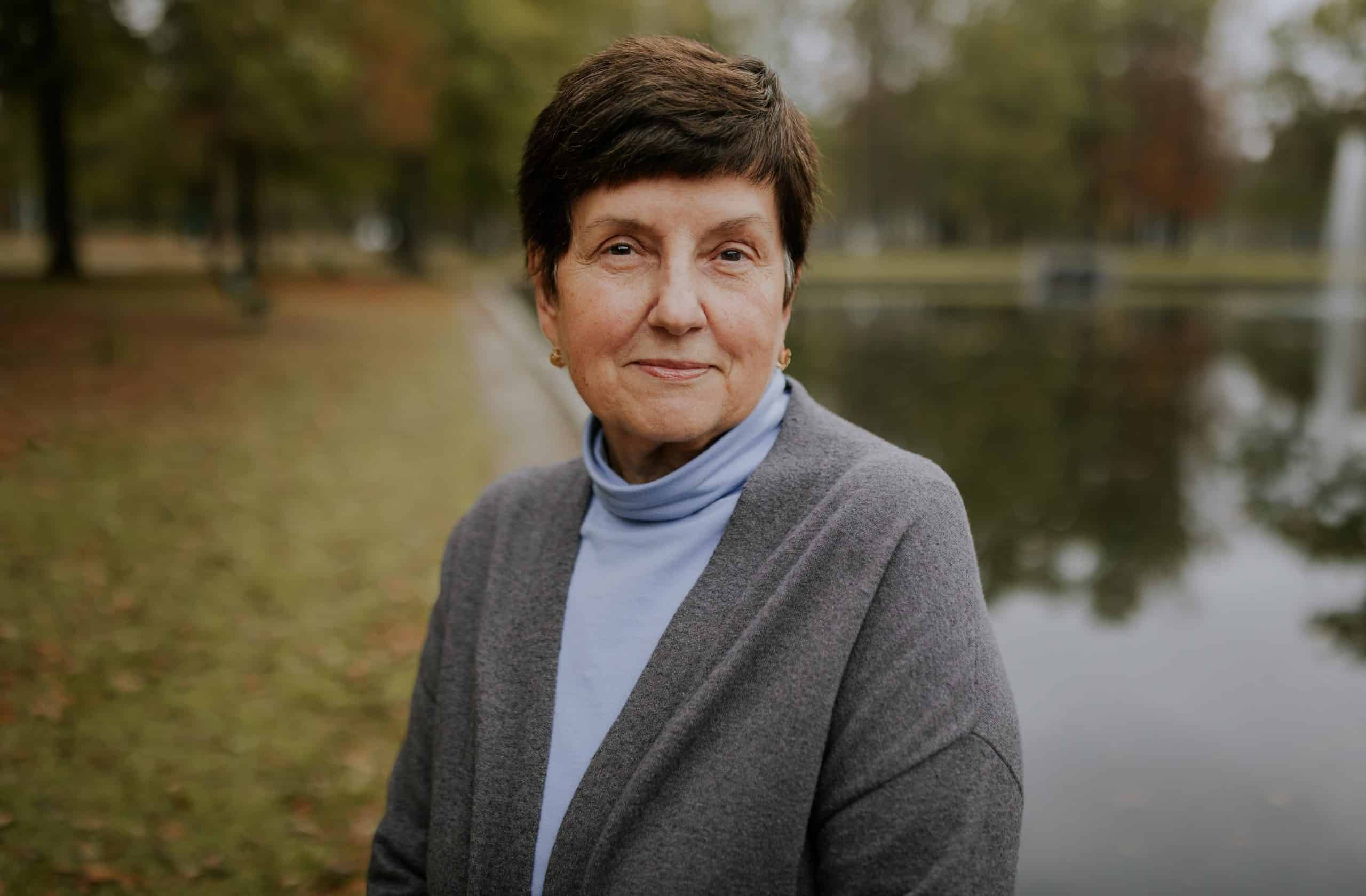
A few weeks ago, we were able to sit down with Valentyna and her daughter Olga, who has lived in the states for about 5 years. Through Olga’s interpretation, Valentyna shared about her life back in Ukraine. As she is 69 years old, she has been happily retired for 9 years living on her own in an apartment in the downtown of a large city. “I had everything. I was happy.” She lived a comfortable life with everything she needed within walking distance. “Everything was fine until the early morning of February 24,” the day the army began their invasion.
Because of the time difference between the U.S. and Ukraine, Olga found out what was happening before her mom. “It was maybe 10pm and we start hearing that Putin announced that they are starting the war. It was 4:30am Ukrainian time and I texted Mom “has it started bombing?” and she checked the TV and said “yes, yes it has started.” Although there had been talks of a potential invasion since October of the year prior, no one wanted to believe it. Olga continued to tell us how she immediately told her Mom to get water and non-perishable food, and to think about getting somewhere safer.
Within the first few days, Valentyna had a “to-go” bag packed with essentials which included her important papers she would need for travel. While still in Ukraine, Valentyna described the first few days of the war as chaos. Bomb sirens were going, traffic jams were everywhere, and everyone was rushing to the store and the bank. People began to utilize basements and old WWII bomb shelters at night, but due to her eyesight, Valentyna couldn’t continue making the trips to the shelter every night. “I was tired so I put a pillow and a blanket in the bathtub, like the tornado rule.” Soon people in her apartment complex started to leave. She shared that anyone with a car packed up what they could and left when they felt things were getting worse. That was one thing she could not do. With no car and no family in the area, she would have to find another way to leave if the time came.
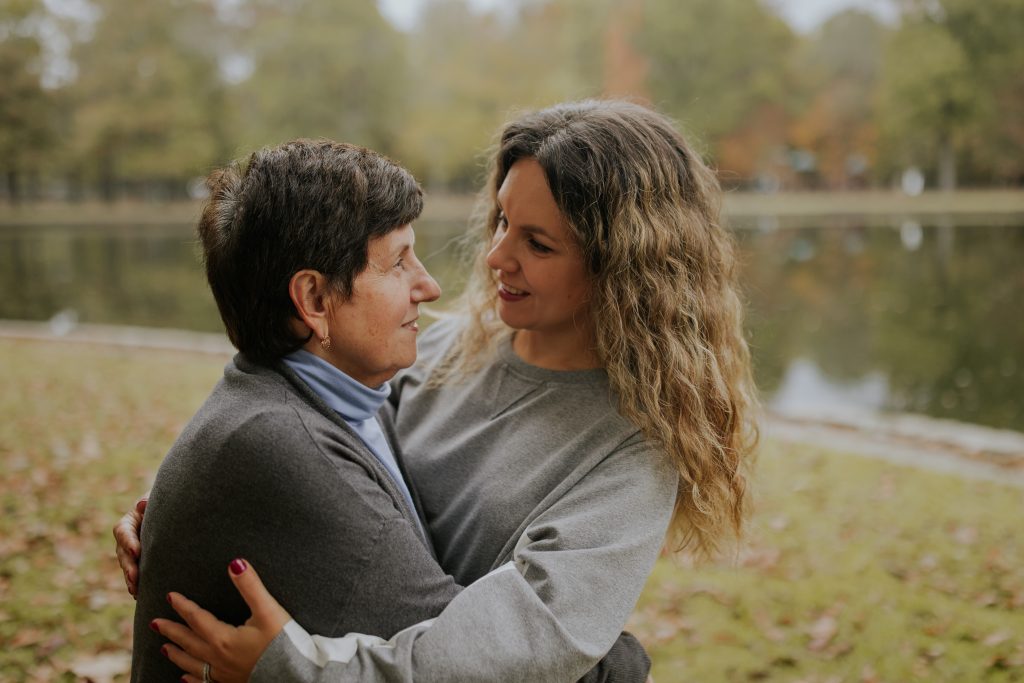
As Olga continued to describe the war and the evacuation process, she shared that Valentyna went through all the stages of denial and acceptance. “She had said to me, “You know I’m 69. Whatever happens, happens.” Olga went on to share more of how she had tried to continue to push the urgency for her Mom to leave, but there is only so much you can do on the phone.
“On April 12, her birthday, she just called me up and said, “I don’t know where to go but can you get me a ticket somewhere, I’m just ready to go.”
After a little over 2 months, Valentyna was ready to leave. “On April 12, her birthday, she just called me up and said, “I don’t know where to go but can you get me a ticket somewhere, I’m just ready to go.” Olga was able to buy her a train ticket to Lviv where she stayed for couple days to rest and then made her way to Warsaw, Poland by bus. For 10 days, Valentyna was able to stay at one of Olga’s old college friend’s places. Next, she traveled to Vienna with another one of Olga’s friends. While there, Olga and her husband had time to plan out next steps.
Since Valentyna needed a visa to come to the United States, the next travel steps were tricky. A few years prior, Olga and her husband had their first child and they had tried to get a visa for Valentyna, but it had been denied and they were worried that it would happen again. Then President Biden announced the U.S.’s intentions to help in the crisis and welcome 100,000 Ukrainians. They were immediately encouraged, although still apprehensive about being able to get a visa quickly enough. Without seeing another option, they all booked a hotel and flights to Mexico to then try to cross the boarder together. It was almost the day to travel when President Biden announced “United For Ukraine” which would allow Ukrainians to apply for humanitarian parolee status. Once they researched the process and used Olga’s husband as the American tie and sponsor, Valentyna was approved and was told she had 90 days to travel.
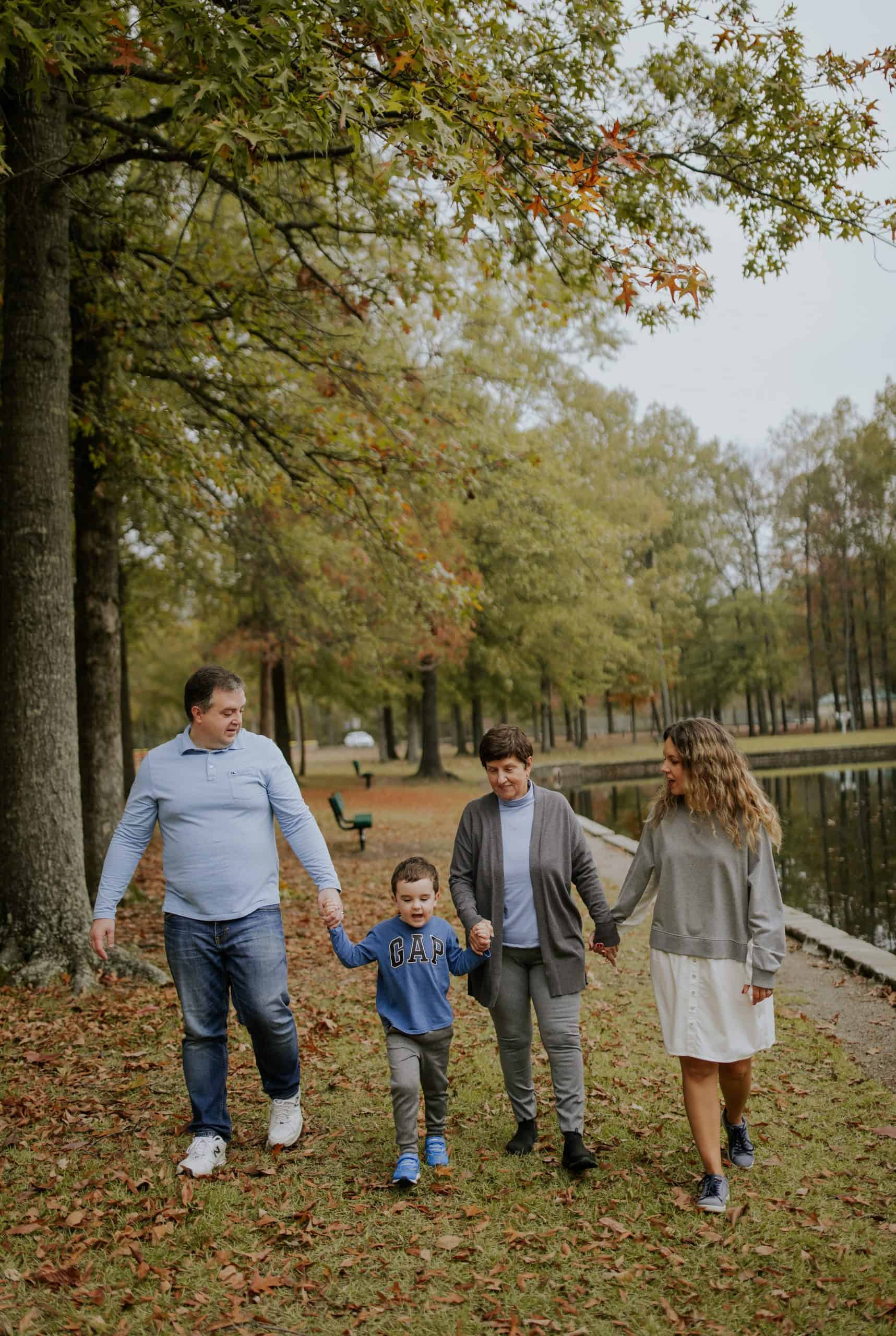
On May 10 Valentyna finally made it to Memphis. Once here, they quickly realized how expensive this process would be as Valentyna needed regular medical help along with required U.S. vaccines and medical screenings. With no insurance, the bills quickly pilled on. On May 21, things started to look up as another act was passed to provide Ukrainians with the same benefits as refugees during their allotted 2 year stay. This meant that Valentyna could now get a monthly stipend and insurance. They needed to find a place where they could start filing for these benefits. That’s when they learned about World Relief Memphis.
After reaching out via phone and email, they were able to get connected with their caseworker Peyton. Peyton helped show Valentyna all the benefits that she qualified for and got her started on filing for the various programs. Olga shared how big of an advocate Peyton has been for them. They have had to deal with frustrating situations at places like the Social Security office, but Peyton helped them persevere. “It’s been a big help. I don’t know how we’d do it without her.” Olga went on to share that “before we got to World Relief Memphis it felt like no one cared.”
“Before we got to World Relief Memphis it felt like no one cared.”
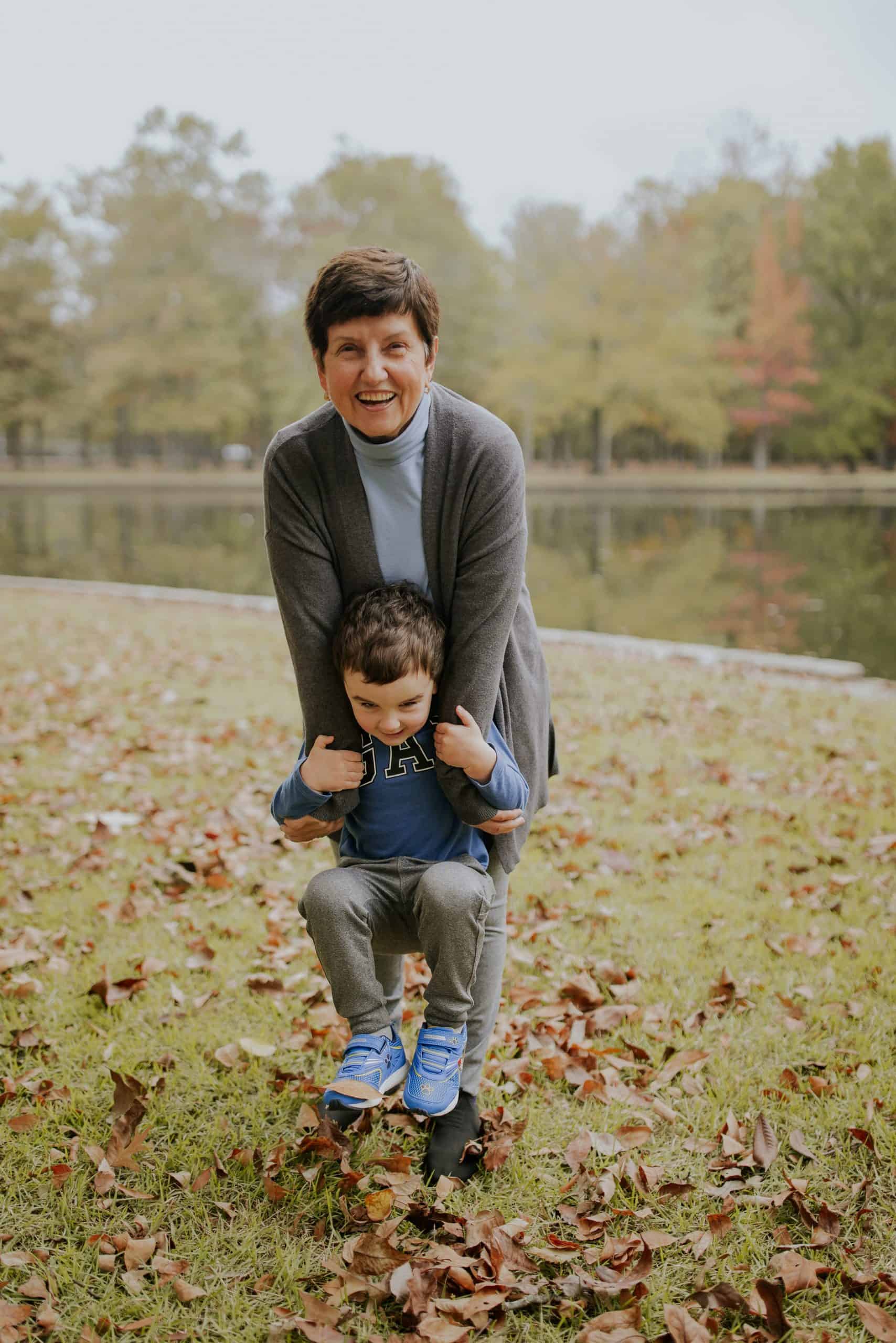
Although she has enjoyed being able to be with family, especially being with her grandson in person, Valentyna’s wish is to return home. In America, and in a city like Memphis where there is little to no public transportation, you don’t know the culture, and you don’t speak the language, it can feel very isolating. Valentyna expressed feeling loss of independence and isolation. Olga commented that “It’s almost like someone with a disability, having to rely on someone else and not being able to leave home without help.”
Accepting that she will at least be here for the winter, Valentyna hopes to be able to return home next summer. Until that day comes, they are all soaking in as much family time as possible. They are even thinking about taking a trip to Alaska as Valentyna has enjoyed watching a show about it on the Discovery Channel.
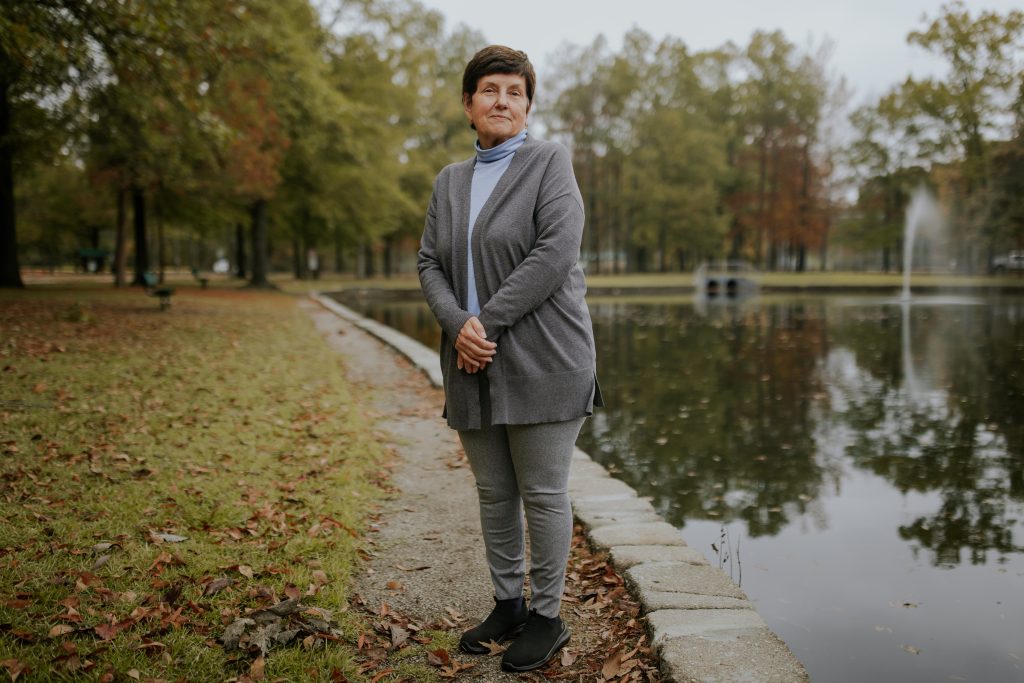
Although Valentyna’s story is not over, she has already accomplished so much and shown her bravery and determination in seeking safety and advocating for herself. We are so thankful for Valentyna and Olga for sharing their story and allowing us to share it with you. World Relief Memphis has been serving in this city for 10 years because of support from people like you. We thank you for joining us on our journey in making Memphis a more welcoming community.

Writer: Kara Spencer
Communication Coordinator at World Relief Memphis, recent graduate of Harding University, and Memphis native.
Photo Credit: Emily Frazier
If you would like to learn more about World Relief Memphis in the coming months, follow us on social media and sign up for our newsletter to stay up to date on events and volunteer opportunities.
If you are searching for an opportunity to begin making a bigger impact, join our new monthly giving program, The Path, for exclusive updates, virtual events, prayer chains, and stories of hope from the women, men, and children whose lives you change.
10 yrs of World Relief Memphis: QaQa and Josephine
Over the ten years World Relief Memphis has been in operation, we have had the privilege of serving hundreds of refugees, asylees, and other vulnerable immigrants. Over the past couple of months, we reached out to some of the first families and individuals we welcomed, to our newest arrivals.
One of the first families we sat down with was Josephine and QaQa. Before meeting in Lebanon in 2011, Josephine and QaQa were living very different lives. Josephine, originally from the Philippines, left home after high school and started working as a traveling housekeeper. As good job opportunities were hard to come by where she grew up, her work took her to various countries in Europe for five years. After finishing her contract and a change in government regulations, Josephine had nowhere to go. After connecting with a friend, Josephine was told about a spa in Lebanon where she could find work and housing, so she made the leap and left for the new country.
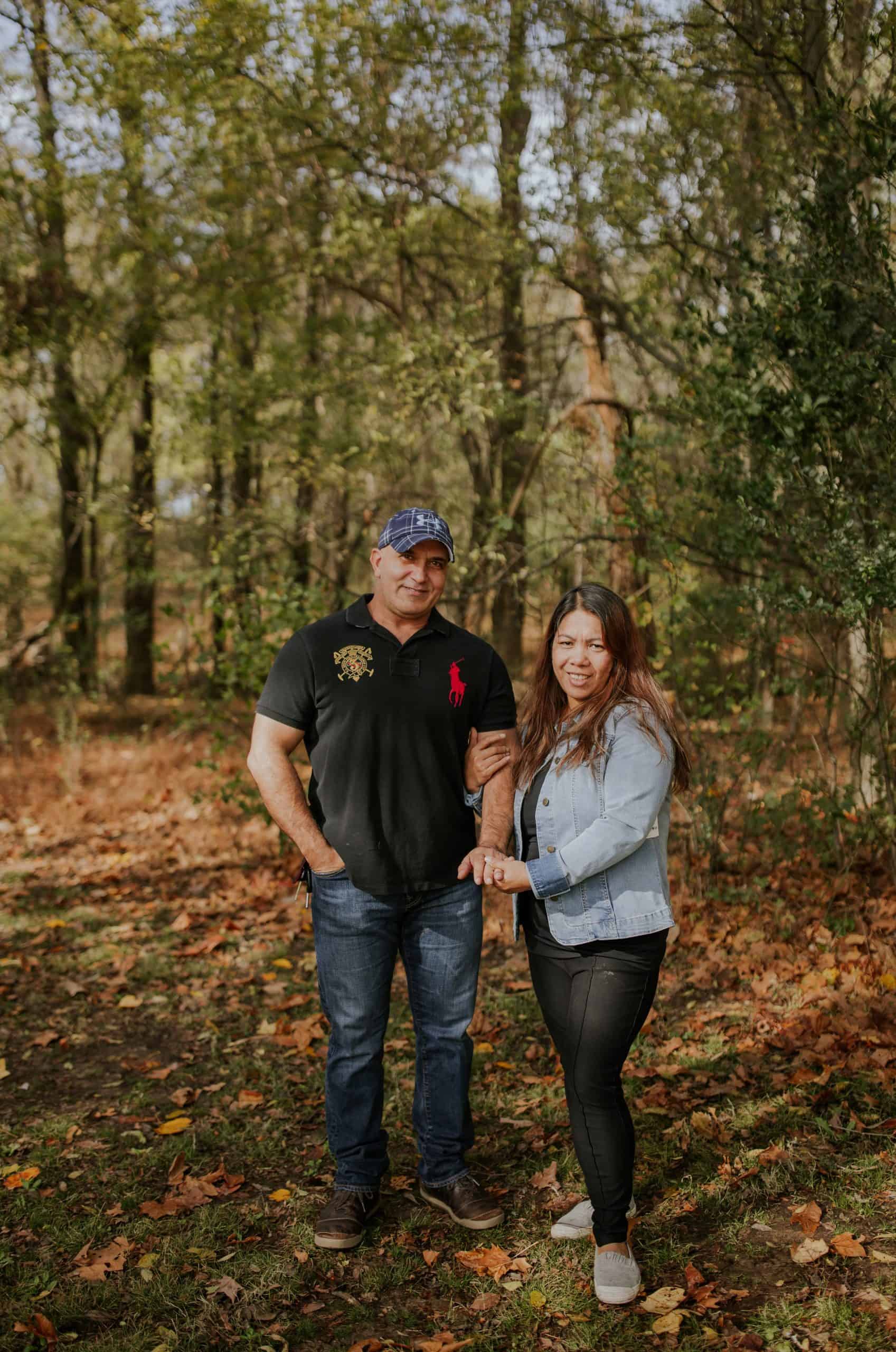
QaQa, on the other hand, grew up in Iraq and as was required, served in the military. During his six years in the army from 1997 until 2003, he was positioned as a coach and trainer. QaQa described life in the army near the end of his service as brutal. They had run out of food, had no access to clean water, and no where to sleep. After three months of these conditions, QaQa escaped to his family home. When he arrived, his family barely recognized him after all he had gone through. QaQa was only able to stay with his family for five days before he realized he was being targeted by the militia. With help from his uncle and a friend, he escaped to Syria where he was able to meet a contact to take him into Lebanon. Once there he was able to receive approval for refugee status and eventually begin working as a trainer at a gym.
In Lebanon, after many years Josephine and QaQa’s paths crossed in 2011. Two years later they were married. QaQa had continued going through the immigration process and was able to add Josephine to his case so that when the time came, they could leave together.
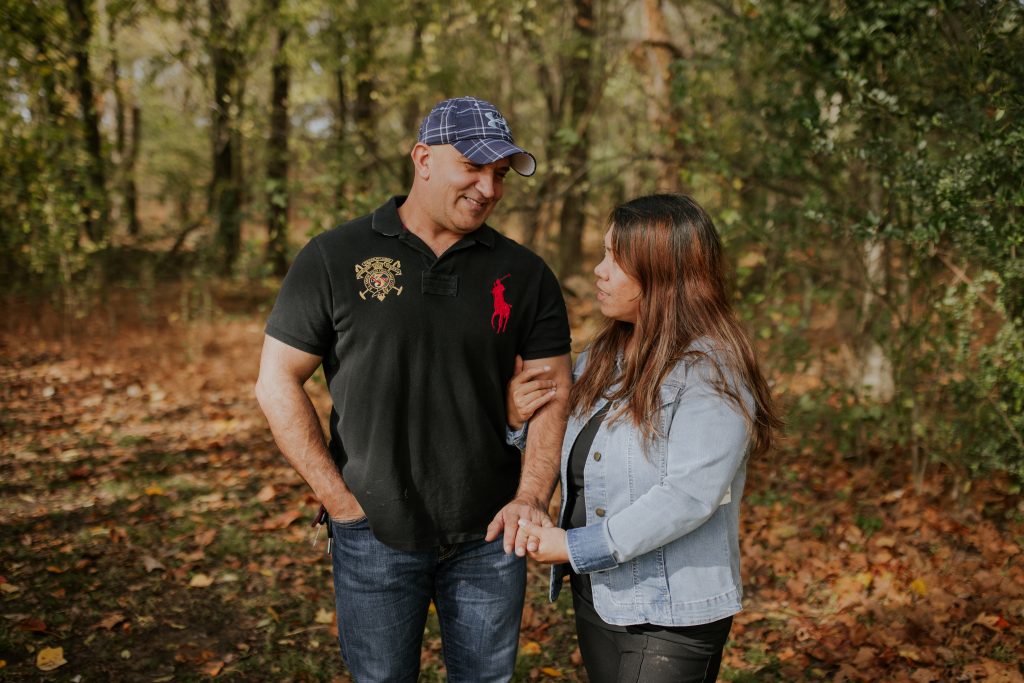
Although Josephine and QaQa had found each other and begun to make a life together, life in Lebanon was not easy. They both described experiencing bombings in the city and recalled their small apartment by the sea where their taps only ran salt water. Josephine also had the added fear of working without papers.
Through her struggle to find work, provide for herself and family, and the ever-changing regulations between the various countries in which she had worked, she did not have the opportunity to seek legal status in Lebanon. One day while working at the spa in 2015, Josephine and five other women were taken in by police for working illegally and placed in jail. Josephine had to leave their infant son Daniel at the spa. Josephine recalls waiting in the jail under the bridge, not knowing if she’d see her family again or why she was really there.
While Josephine was in jail, QaQa found the caseworker who had helped him with the process of receiving refugee status and adding Josephine and their son Daniel to his case. After hearing what had happened, the caseworker was able to explain Josephine’s status to the police. Fifteen days later she was finally released. Sadly, this was not the last time she was sent to the jail. After hearing that her father was ill in 2016, she tried to find a way to visit her family in the Philippines but the police had taken her passport when she had been taken into custody. On a leap of faith, she went back to the jail to try and retrieve it but was placed back into custody instead for another fifteen days. While in custody, her father passed away and she was unable to attend the funeral. Though heartache and challenges came their way, Josephine and QaQa remained strong and patient during their time in Lebanon.
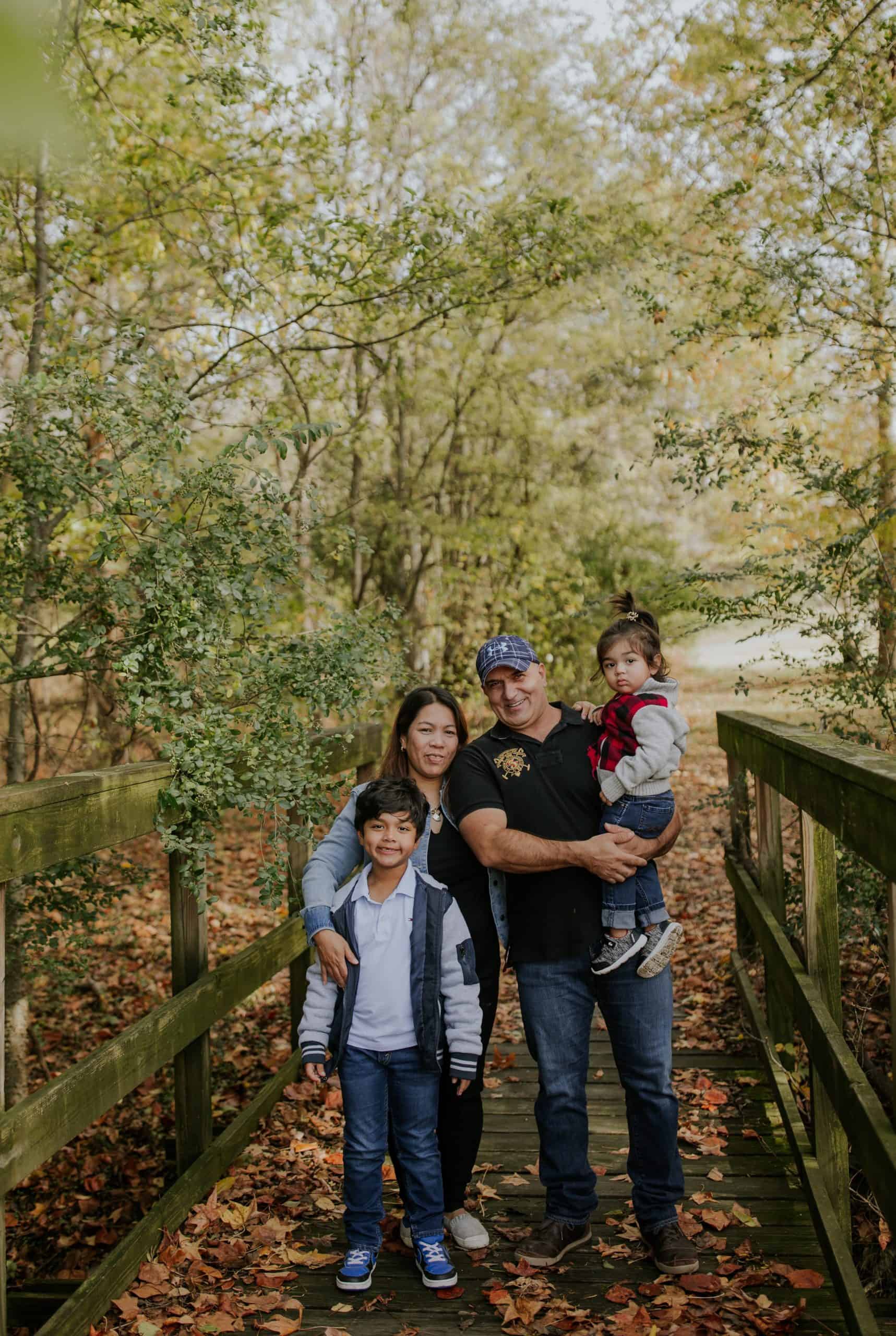
Finally, in January 2017, QaQa’s case was approved for resettlement and the family was on the way to the U.S. QaQa commented that when he found out that they were finally traveling, he had almost forgotten he was in the refugee process as it had been fourteen years since he first came to Lebanon. But it was real.
In January 2017 Josephine, QaQa, and Daniel made the long trek to Memphis Tennessee where the World Relief team was eagerly awaiting them. When they arrived, they found they already had a furnished apartment near other refugee families and multiple caseworkers helping them with paperwork, job placement, and doctors visits. They also had a Good Neighbor Team in place to help support them in their transition during the first few months in Memphis.
As neither of them spoke English upon arrival, the first few months were especially challenging. After six months they were both able to start jobs and really land on their feet. They discovered how different life was, but with community around them, they felt supported.
“It was very helpful. Like when we started they were there step by step until we pushed to our main goal. Our goal that we can build our family here where we are stable and we are legal. We are very thankful to World Relief.”
Now, five years later they are home owners, have their own cars, are citizens, have steady jobs, and even have another son, David. Over the years they have been able to keep in touch with family through apps like WhatsApp and Facebook but nothing compares to being together as Josephine and QaQa expressed.
When asked what impact World Relief has had in their life Josephine shared, “It was very helpful. Like when we started they were there step by step until we pushed to our main goal. Our goal that we can build our family here where we are stable and we are legal. We are very thankful to World Relief.” QaQa also shared that “World Relief helps people. They help people not just stay in the house together all the time.” He shared that he was grateful for the initial assistance but was most excited to be independent and provide for his family, and World Relief helped him do just that.
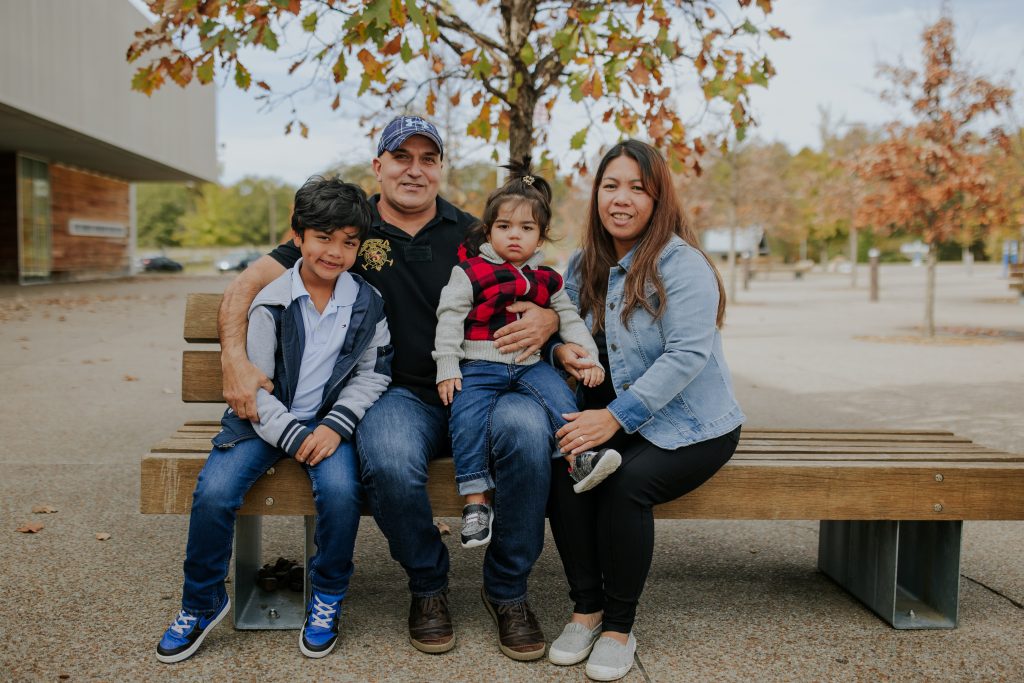
Looking to the future, QaQa and Josephine hope to see their children continue in school and go to college. Josephine shared that, “we work hard for our children to go to college, and we will continue working hard until they go to college and then stand on their own.” They also have dreams of travel. Now that they have their passports they are planning a trip to visit Josephine’s family, whom she hasn’t seen since 2010.
As our conversation wrapped up, Josephine and QaQa continued to speak about visiting friends in different states, and their experience with buses. Josephine laughingly said “my husband, he’s very adventurous. He is very confident in himself,” as QaQa was telling a travel story.
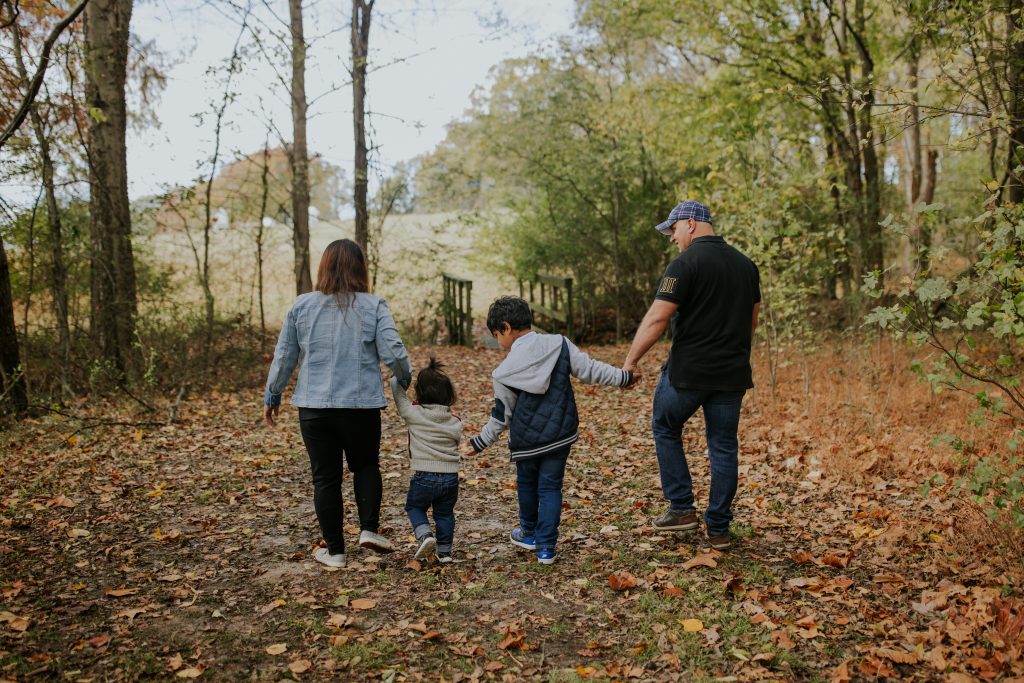
We are so thankful for Josephine and QaQa for sharing their story and allowing us to share it with you. World Relief Memphis has been serving in this city for ten years because of support from people like you. We thank you for joining us on our journey to making Memphis a more welcoming community.

Writer: Kara Spencer
Communication Coordinator at World Relief Memphis, recent graduate of Harding University, and Memphis native.
Photo Credit: Emily Frazier
If you would like to learn more about World Relief Memphis in the coming months, follow us on social media and sign up for our newsletter to stay up to date on events and volunteer opportunities.
If you are searching for an opportunity to begin making a bigger impact, join our new monthly giving program, The Path, for exclusive updates, virtual events, prayer chains, and stories of hope from the women, men, and children whose lives you change.
World Relief saved my life. Now, I’m giving back.
As a nonprofit organization, we talk a lot about donations and giving back here at World Relief Memphis. While part of how WRM functions is through government and local grants, we could not do what we do without people like you. People who are on the path, investing in the community to see mutual transformation happen in this city.
Former client and friend, Reza Abdoli, spoke with us this summer about his lifechanging experience with World Relief Memphis and why he decided to give back.
In need of help
On December 9th, 2012, I arrived in Atlanta, Georgia, as an asylee. I left my home in Afghanistan because of my country’s increasing instability, which restricted my ability to further my education.
My original intention when coming to the U.S. was to pursue a master’s degree in computer science. But I was influenced by people I knew from home to change my career to medical or dental school. There was one complication, however. They immigrated a few years prior, were already American citizens and did not explain the roadblocks I had in front of me as an asylee if I changed my career path.
Initially, I had no idea what World Relief was — they were just another faceless organization. But when I first walked into the Memphis office, that changed.
Reza Abdoli
Nevertheless, I moved to Memphis and began trying to pursue dentistry. Soon I discovered that it was impossible to participate in dental school without permanent resident status. I was at my lowest point of life, unable to get a good job and depressed.
Just a student paying back my loans without a path forward. I was driving for Uber and working other low-paying jobs, trying to make some money just to survive. Never had I been like that before, and it was scary. I needed help.
Finally, I got my USCIS approval for asylum in 2019, and they told me about some organizations that help asylees like me. That’s when I first found out about World Relief.
Initially, I had no idea what World Relief was — they were just another faceless organization. But when I first walked into the Memphis office, that changed.
A new family
That first day, there was a young lady at the door to greet me. She said, “Hey, how are you? Welcome!” I was like, she already knows me? Was she expecting me? They were so excited to meet me. It was comforting.
Before World Relief, I had so many problems traveling in the U.S. People would say hurtful words about me. It made me feel like, “this is not my place, and I have to leave here.” That feeling was only made worse by my struggles with school and money.
But my World Relief case worker, Basuze, always listened to me without judgment. He and the rest of the team acted like I was a family member. I kept coming back to the office to hang out with everyone because I felt loved.
He and the rest of the team acted like I was a family member. I kept coming back to the office to hang out with everyone because I felt loved.
REZA ABDOLI
World Relief was like a chain holding me together. I was struggling so deeply I was even planning to break up with my girlfriend because I had no money and knew I could not support us. World Relief kept my life together, and I still have my now-fiancé in my life.
World Relief pushed me to continue my education, and I returned to my passion for computers. I found the cheapest online program and got my master’s in computer science. I knew when I first came to the U.S. that I could make a living if I got a degree, but I just needed some help to get there.
Whether it was government paperwork, monetary assistance or encouragement, World Relief guided me. Through this guidance, I was finally able to get a good job.
A few months ago, I bumped into Basuze at the Memphis airport. He was there welcoming someone new who was arriving in the U.S. That was an emotional moment for me. It helped me realize how far I’d come and how much I wanted to give back.
Paying it forward
After my encounter with Basuze at the airport, I told myself that I would give a portion of my salary every month to World Relief. And every time I got a raise or promotion, I would increase my giving. And that’s what I’m doing. I’m not making millions, but I can now live without fearing the next day. And I want to do my small part to make that possible for the next person.
I give to World Relief because I’ve experienced first-hand that they use their funds wisely. Whether helping with moving, providing furniture, offering career guidance or helping financially, World Relief is putting its funds towards the good of others. Whatever is asked of them by the people they served, they step up.
I still have the check receipts of what World Relief gave to me. I still have them! That’s how much they mean to me. World Relief gave me the opportunity and the courage to pursue what I dreamt about, and it is important to me that I can be a part of making this possible for others.
World Relief gave me the opportunity and the courage to pursue what I dreamt about, and it is important to me that I can be a part of making this possible for others.
REZA ABDOLI
For me, giving back is both financial and relational. Because of my job, I’m now living in Los Angeles. Since moving here, I’ve made an effort on my own to connect with other Afghan families in my community.
When visiting with them, I always encourage the younger people to get a degree, even if it’s the cheapest one available. I didn’t spend much on my master’s degree. It was less expensive than the classes I took in dental school, which I’ve never used. But if you get a degree and find a job to support yourself, you can live the dream! It is possible here.
I feel blessed to be able to share my story with my Afghan community and people like you. I hope that my story will encourage and help others to pursue their goals.
My hope is that my story also urges people to be kinder to immigrants. They have had enough hardship in their life. When someone comes to World Relief, they are there because they seek your help. There may be language barriers and cultural differences. That’s okay. Take time to understand them. They need that. If they were in a good place in their life, they would not have come to World Relief. When someone comes to us for help, the least we can do is be more patient, be a good listener and spend more time with them.
We’re so grateful to Reza for sharing his story with us. Through generous giving such as Reza’s, our office can continue cultivating a welcoming and supportive community for refugees, asylees, and other vulnerable immigrants from across the globe. If you feel called give back and forge The Path to lasting change, follow this link for more info on how to become a Pathmaker today.

Nathan Spencer (pictured above) is a lifelong Memphian passionate about this city and its people. Through his professional internships at Choose901 and World Relief Memphis, he has worked to cultivate a connected community and serve the needs of both new arrivals to Memphis and those multi-generational residents. He also recently graduated with his M.A. in Journalism and Strategic Media.
Reza Abdoli is a former client and current donor of World Relief Memphis. While in Memphis he also served as a volunteer in various capacities at the WRM office. Since leaving Memphis, he has made a point to connect with his Afghan neighbors and advocate and mentor immigrants in his new community. He also holds a Masters degree in Computer Science and resides in Los Angeles California.
Summer Intern Experience
Cole Pittman, a born and raised Memphian, spent his summer interning with us at World Relief Memphis. Here his eyes were opened to the established and ever growing refugee community in Memphis and their powerful stories.
Upon reflection about my summer with World Relief, I cannot help but acknowledge that some of my favorite memories and experiences I had were making connections with the clients. As a native Memphian, I had no idea coming into this internship the number of refugees that are currently living in Memphis. It was also very mind boggling to me just how long the process takes.
Some families would mention how their kids have never been to their country of origin because they were born in a refugee camp. Hearing horror stories of how some families have spent upwards of fifteen to twenty years of their lives in limbo waiting for the next interview or background check made my heart break for this community. These are stories that you will not hear from any media source and getting the opportunity to hear them from people I was working with was life changing.
Many of my previous misconceptions about refugees and the refugee resettlement process were challenged this summer. This is not a community that is discussed much, unless there is an active conflict going on. Even then they do not explain the process of resettlement at all. After meeting these communities my eyes were opened to the need and opportunity presented to the local church and to Memphis as a whole.
After meeting these communities my eyes were opened to the need and opportunity presented to the local church and to Memphis as a whole.
These families are in situations most of us will never have to go through or even imagine going through. Most Americans will never be forcefully uprooted and then forced to integrate into a culture that they do not know anyone in, do not know language of, or anything about. There is so many cultural practices that are so normal to us that we do not even consider them cultural. For instance, seatbelts, convenience stores, or driving everywhere (especially in Memphis). These are things that these families would have to adjust to on their own if it were not for the work being done at World Relief.
I was introduced to World Relief through a booth at the mission’s conference at Bellevue Baptist church. Since then, I learned about their ongoing work with the Afghan refugee crisis and when I started looking for a summer internship their organization piqued my interest. The main thing I learned is that these people or organizations cannot run properly without the help of volunteers.
Volunteers are a crucial part of this line of work and the local church has a responsibility to help fill that need.
Volunteers are a crucial part of this line of work and the local church has a responsibility to help fill that need. This is a large community that lives among us that needs help. I encourage anyone who has any interest in volunteering in Memphis to look into World Relief. There are so many opportunities to provide community to these families who might have no connections in Memphis.
All of this to say, be the hands and feet of Jesus and help this community who are in your neighborhoods, schools, and lives. Yes, the concept of not being able to understand someone’s language or culture can be daunting, but it is a necessary leap that we need to make Memphis a more hospitable place to live.
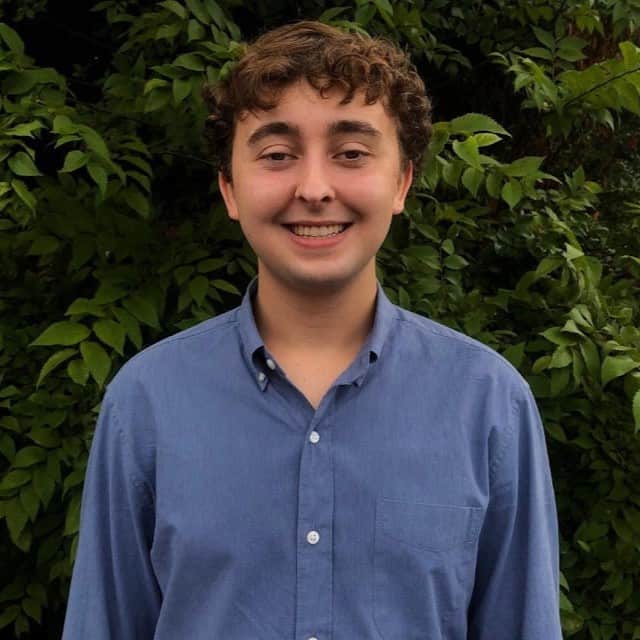
Author: Cole Pittman
Summer 2022 intern at World Relief Memphis, Sophomore at the University of Alabama, and Memphis native.
Interested in joining the welcoming community? Fill out our volunteer application and attend one of our monthly volunteer orientations to find out next steps for and opportunities:
Feeling called to make an impact but can’t donate your time? Learn more about joining our monthly giving program The Path.
20 Ways to Learn More About Refugees
Over the past year, crises in Afghanistan and Ukraine have reminded us of the devastating impacts of war — especially on those forced to flee their homes.
Around the world, a record breaking 100 million people have been forcibly displaced. Of those, 26.6 million are considered refugees, having fled across an international border due to war, violence, conflict or persecution. That’s millions of mothers and fathers, daughters and sons, teachers, doctors and friends — each created in the image of God — with full lives and identities long before they became refugees.
As we enter World Refugee Awareness Month and look toward World Refugee Day on June 20th, we’ve compiled a list of books, podcasts, videos and more to help answer your questions about refugees. As you engage with and share these resources, we hope you’ll be inspired to join us in creating a world where everyone can thrive.
READ
Blog: Drivers of Mass Displacement
For every 95 persons worldwide, 1 has been displaced. People are displaced from their homes for myriad reasons, including persecution, conflict, violence, human rights violations and climate-related factors. World Relief’s Lydia Dawson explains the drivers of mass displacement and how World Relief is responding globally.
Blog: Welcoming the Welcomers: One Afghan’s Journey to the U.S.
David was one of the 53,000 Afghans evacuated out of Kabul in August. He shares his story of escaping Afghanistan with his family, resettling with World Relief North Texas and the long road to rebuilding.
Book: Inalienable: How Marginalized Kingdom Voices Can Help Save the American Church
U.S. churches are at a critical crossroads — blurred lines between discipleship and partisanship have compromised our witness and confused our national and individual responses to refugees and “the stranger.” In a new book, pastor Eric Costanzo, missiologist Daniel Yang and World Relief’s Matthew Soerens find hope in the witness of global Christians, the poor and the ancient church.
Book: Beyond Welcome: Centering Immigrants in Our Christian Response to Immigration
World Relief’s Karen González, invites Christians passionate about serving immigrants to explore how we can create welcoming communities that put our immigrant neighbors at the center of the conversation. Now available for pre-order.
Book: Everything Sad is Untrue: (a true story)
Following his mother’s vocal embrace of Christianity, Daniel Nayeri, his mother and his sister were forced to flee Iran. In this memoir, he retells the tales of his family’s history from his perspective as a misfit middle schooler in Oklahoma.
Book: The Girl Who Smiled Beads
When Clementine was six years old, she and her 15-year-old sister, Clair, fled the massacre that was happening in their home country of Rwanda. In this riveting memoir, Clementine tells their story of rebuilding and reclaiming life on their own terms.
Book: On the Other Side of the Sky
After stepping on a landmine and narrowly escaping death, Farah Ahmedi fled her home country of Afghanistan with her family and resettled in the U.S. Today, Farah is a writer, mother, speaker, humanitarian and activist. She tells her story in this remarkable memoir.
LISTEN
This World Relief mini-series offers a global and a biblical perspective on the subjects of immigration, mass displacement and refugee resettlement, diving into current policies and practices and sharing stories of our collective human experience.
Podcast: Working a Refugee Crisis: Jordan
In 2011, civil war broke out in Syria resulting in the largest refugee crisis since World War II. In this six-episode series, hear conversations from refugees, locals, relief workers and aid agencies who responded to the crisis in Jordan and gain a deeper understanding of the refugee crisis.
This six-part series traces the U.S. refugee resettlement journey through the eyes of those directly experiencing it. Follow along as each episode brings the listener into the daily lives of refugees adjusting to life in the U.S.
Podcast Episode: Learn and Pray Together for Ukraine with Jenny Yang
Crises like the war in Ukraine can feel overwhelming. In this podcast episode, Jamie Ivey talks with World Relief’s Jenny Yang about practical ways Christians can respond through prayer, advocacy and action.
WATCH
TEDxTalk: One Refugee’s Life Experience | Come Nzibarega
Born and raised in Burundi, Come Nzibarega shares his story of escaping torture and civil war. Today, Come works as an Employment Specialist for World Relief. Hear more of his story and hear why Come thinks refugee camps are the richest places in the world.
After 8 years in a Refugee camp, Raphael arrived in the United States and was welcomed by World Relief volunteers. Now, he works on staff with World Relief in North Carolina. In this short video, he shares his resettlement journey.
Video: Who are Refugees and How Do They Arrive in the United States?
From flight and displacement to arrival and integration, this 7-minute animated video tells the true story of a refugee family’s experience in each stage of the refugee resettlement process.
STUDY
World Relief Workshop Course: Navigating Friendships
Navigating friendships with those who are different from us can be rewarding — and challenging! In this self-paced, online course you’ll learn essential skills for building empowering, long-lasting friendships with those who may differ from you in culture, socioeconomic status and religion, and best practices for supporting a friend who lives with trauma. Now through June 30, enroll for 50% off with code WORLDREFUGEEDAY50.
Our culture is flooded with thoughts and opinions on people who leave their homes and immigrate to the U.S. — but what does the Bible have to say about migration? Journey deeper into God’s redemptive story of migration and discover his heart for refugees, immigrants and the displaced in this free, six-week study from our partners at Women of Welcome.
Bible Reading Plan: The I Was a Stranger Challenge
Take the challenge and discover God’s heart for those who have been displaced. Over the course of 40 days, read one Bible passage a day that speaks to God’s love for foreigners and refugees.
FOR THE WHOLE FAMILY
Women of Welcome Family Toolkit
Do you wish you could talk with your kids or teenagers about immigration but aren’t sure how? This toolkit makes it simple and fun to invite your family to engage in positive conversations on hospitality and immigration through scripture reading, discussion questions, coloring pages, prayer journal pages, book recommendations and more.
For parents and teachers struggling to know how to talk about mass displacement with children and teens, the UN Refugee Agency offers teaching materials on refugees, asylum and migration, as well as guidance for teachers working with refugee children in the classroom.
Want to keep learning? Stay informed about refugee resettlement and World Relief’s work to care for those in vulnerable situations around the world by signing up for our monthly email newsletter.

Karen Spencer is World Relief’s U.S. Marketing Partner and serves U.S. offices in the area of identity and messaging. She previously served as Mobilization Director for World Relief in Memphis. She is a connector of people, places, passions and purpose.

Kelly Hill serves as a Content Writer at World Relief. She previously served as Volunteer Services Manager at World Relief Triad in North Carolina before moving to Salt Lake City. With a background in International and Intercultural Communication, she is passionate about the power of story to connect people of diverse experiences.
Retirees and Refugees: Trezevant Manor Residents Serve through English Tutoring
As we approach Volunteer Appreciation Week in April, we are sharing inspiring stories of relationships between World Relief Memphis volunteers and our refugee and immigrant community. We’re confident you’ll agree with us, our volunteers are #LoveInAction!
If there was an award for most positively persistent volunteer, it might go to Julia Allen. At 92 years old, she is energetic, socially engaged, urgent about her desire to serve refugees in Memphis, and influentially persisted to see her plan to help them come to fruition.
Since the fall of 2017, Julia has volunteered with World Relief Memphis through organizing and leading a weekly English as a Second Language Class (ESL) for elderly refugees in her city. The class meets Wednesday afternoons and volunteer tutors are all fellow residents of her retirement community, Trezevant Manor. Julia was reminded about refugees in Memphis when someone from World Relief presented at her church. She recalled the joy she’d experienced in years past when she had volunteered with refugees, and she knew she wanted to help in some way again. She invited World Relief to speak at a luncheon at Trezevant Manor to ignite awareness in other residents as well; several expressed similar interest, but were curbed by lack of transportation to volunteer in World Relief’s traditional roles. “A lot of people in Trezevant want to be involved in service but have limited transportation,” Julia told us. But she was determined to help, wondering if somehow the refugees could come to Trezevant. “Karen from World Relief just made me care about the refugees. You know, when we talked, she said, ‘Maybe we can bring them here!’” An idea was born.
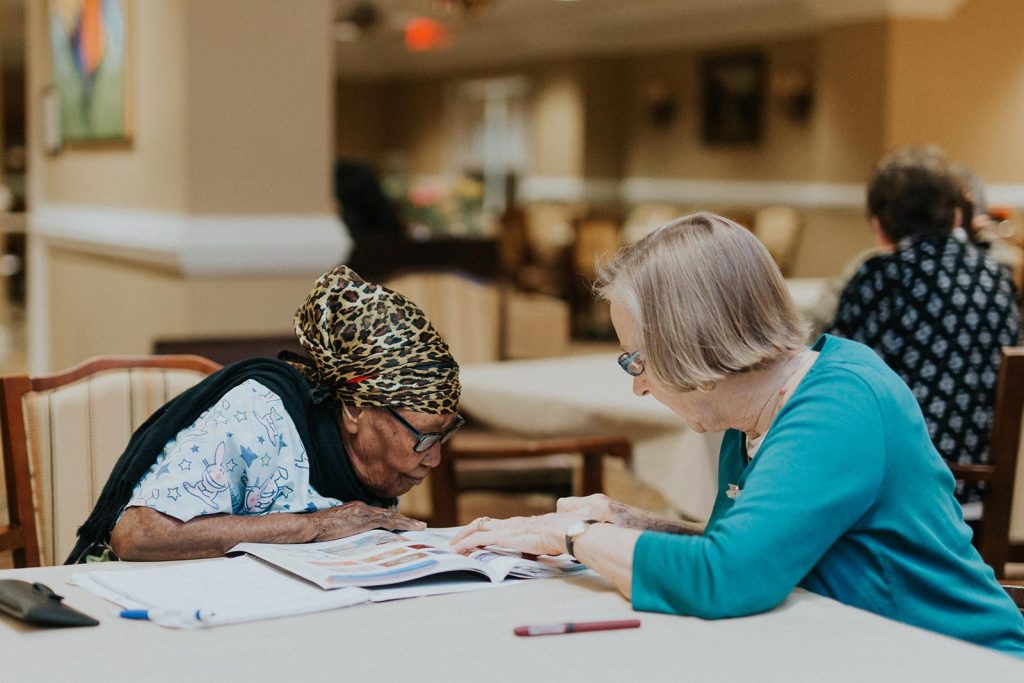
Julia and World Relief did find a way to bring refugees to Trezevant, and it has been a big success for both the residents of Trezevant and the refugee clients. Julia shared, “[One of] the really big things we’ve learned through this ESL class for these folks, [be]cause these are older folks…is they stay home. They’re the ones who babysit, they’re the ones who don’t know enough English to get out, so they stay home until their children can take them to the grocery, so they are housebound. So this is an outing, something they’re doing without their family. They’re coming together, and they love that.” World Relief staff can affirm this. Even after the very first class, one of the ESL students, content and smiling, said, “Today was a good day. I’m not alone.” Their new friends benefit from intentional, individual tutoring and the opportunity to practice English, often 2:1 volunteers to clients. “One of our men is 83, and he’s from Baghdad, and he can write a sentence! So he’s moving on big time, and we’re all excited about him! He’s our most enthusiastic…It’s just amazing at 83 to be so eager to learn…They all are so sweet, so appreciative.”
Julia spoke about other benefits she has seen. “I would like to think they are seeing some Americans who are friendly, warm, and helpful. They are excited to get out and see some of the world without somebody to lean on. They have become very friendly with each other. I think, and I hope, they feel that they’re making some progress.”
And the volunteers? “What we get out of it is immeasurable. It’s just a joy to live here and think that you’re doing something that is maybe beneficial to somebody else. You can get very isolated and self-centered here, and even happy, but not be contributing at all. And these people love what they’re doing.”
“Every time I visit the class at Trezevant, I feel it is a sacred space, I can’t really describe it any other way. These two groups of people together give me a glimpse of the Kingdom on Earth as it is in Heaven,” described Karissa Pletta, World Relief’s resettlement specialist responsible for Elders services.
Of course, the Elders’ ESL class hasn’t been without its challenges. Julia shared that she had to be selective about which residents to invite to volunteer with tutoring because of an experience with someone who vocalized not wanting to welcome refugees. “You know, when you’re only with people who are fearful, it’s really hard not to take on some of their fears,” Julia said. She also told us about her desire for this class to be more relational than transactional: “We don’t want it to be like, ‘We are the ones giving to you poor creatures!’ But instead, we are friends working together. And I think we’ve instilled that atmosphere.”
Their friendship was strengthened on a recent field trip to the Brooks Museum of Art in Memphis. Aware of their nationally touring exhibit, African-Print Fashion Now, the volunteer tutors suggested the joint visit for a tour and tea. The museum provided guided visits to historic portions of the museum as well as fabulous docent-led focus on the fabric exhibit. The afternoon fostered continued community building.
——————-
When scheduling a time to meet with Julia outside of the ESL class, she said, “Well, you can’t come at 9, that’s my water aerobics class. Be here at 10!” In a few hours together, hardly a single person, resident or worker, passed us by without offering a “Hello, Miss Allen! Good morning, Miss Allen! How are you doing today, Miss Julia?” Clearly, Miss Julia is not your average 92 year old, and when we sat down to talk, she wasted no time getting to the point. She had a story to tell, and she was ready to tell it.
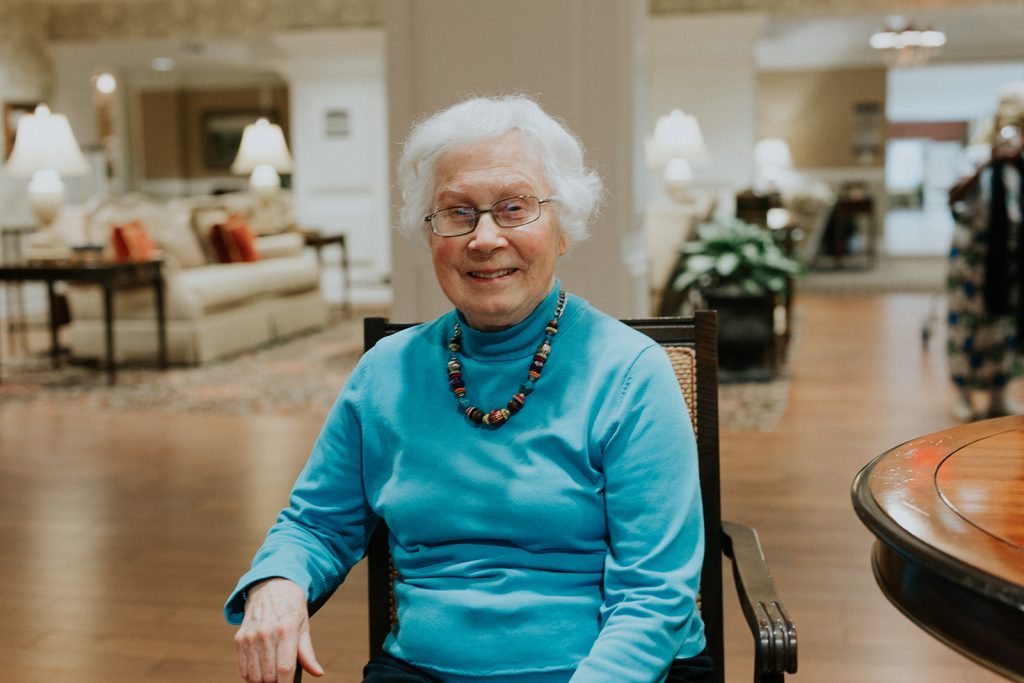
What inspired Miss Julia to go above and beyond in the way that she has for these refugees? In addition to being an active community member (“My children say, ‘Mother, you’re never in your room, we can’t ever get you on the telephone!’”), serving others has been a part of Miss Julia’s life for a long time. “I’ve done a lot of mission trips with my church. I thought I wanted to be a missionary until I met my husband. I’ve just always been drawn to serve in some way. When I was younger, I was very shy. When I was in college, it was during the war, they had a program at church asking volunteers to go into communities where they were short-handed, and they just didn’t have enough people to do things. So I went to Mobile, Alabama, that summer. That was the first time I really just reached out. I think it was a formative time for me because I got over being shy. And then, I just went from there, because I wasn’t happy if I wasn’t doing something that I felt was helping. But you know the receivers are yourself. I, too, was finding out that this means far more to me than it could possibly mean to a refugee. And that’s what brotherhood and service and all those things, that’s what that means.”
Once Miss Julia knew there was something she could do to help refugees integrate more successfully, her empathy moved her to action: “You start thinking about what would I do if I had to leave everything I own, even the members of my family, and leave, run away for safety, and go through the ordeal of the refugee camp, and wait, wait, wait? And then come to a place that is so entirely different from their experience, not knowing anybody, not knowing the language, running into all different ways of doing things. I just thought, what would I do if I had to go to Congo and learn Swahili?”
Miss Julia offered advice for anyone who is hesitant to get out of their comfort zone and come alongside refugees as they rebuild their lives in America: “We’re so aware of refugees in Memphis now in a way that we were not before. There is a desire to do what we can. I just have to believe that you’re gonna find some more people that would like to do this. And you have to have faith. Even [if you think], ‘I’ve never done this, and I don’t know if I can.’ You can! And the only way to find out if you can is if you do it.”
Miss Julia, thank you for inspiring us with your example. You model Love In Action.
By Noah Rinehart, Intern, World Relief Memphis
Photos by Emily J Frazier/Emily Frazier Creative for World Relief Memphis








